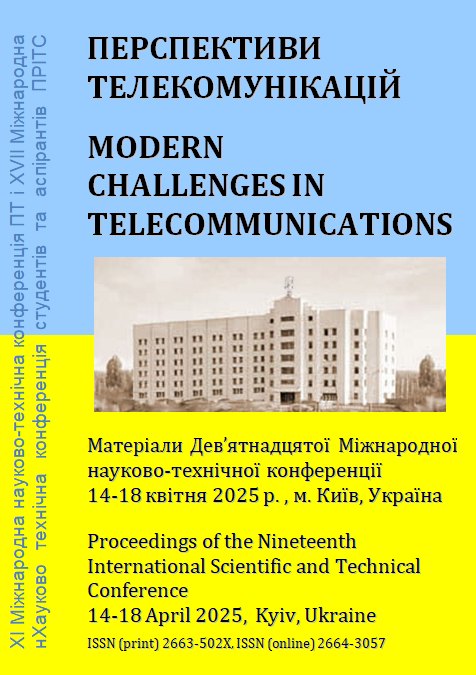ПЕРЕВАГИ ВИКОРИСТАННЯ ТЕХНОЛОГІЙ ВІРТУАЛЬНОЇ РЕАЛЬНОСТІ ДЛЯ ТРЕНУВАННЯ САПЕРІВ
Ключові слова:
ВІРТУАЛЬНА РЕАЛЬНІСТЬ, РОЗМІНУВАННЯАнотація
Використання технологій віртуальної реальності в системах підготовки саперів може значно підвищити якість підготовки військовослужбовців та знизити ризики для їхнього життя. У статті розглядаються перспективи та переваги використання технологій віртуальної реальності для розмінування.
Посилання
. Ворович Б. О. Шляхи вирішення проблемних питань розмінування території України / Б. О. Ворович // Збірник наукових праць центру воєнно-стратегічних досліджень Національного університету оборони України імені Івана Черняховського. – 2020. – № 2. – С. 143–149. – [Електронний ресурс]. – Режим доступу: https://doi.org/10.33099/2304-2745/2020-2-69/143-149 (дата звернення: 2.09.2024).
Організація виконання робіт з розмінування місцевості від вибухонебезпечних предметів / Р. Л. Колос, Ю. О. Фтемов // Військово-технічний збірник. - 2017. - № 17. - С. 53-60. - [Електронний ресурс]. – Режим доступу: http://nbuv.gov.ua/UJRN/vtzb_2017_17_12 (дата звернення 4.12.2024).
Ткачук А.Г., Добржанський О.О. Застосування VR-технологій у військовій робототехніці. - [Електронний ресурс]. – Режим доступу: https://conf.ztu.edu.ua/wp-content/uploads/2023/06/192.pdf (дата звернення 18.11.2024).
##submission.downloads##
Опубліковано
Як цитувати
Номер
Розділ
Ліцензія

Ця робота ліцензується відповідно до Creative Commons Attribution 4.0 International License.
Authors who submit to this conference agree to the following terms:a) Authors retain copyright over their work, while allowing the conference to place this unpublished work under a Creative Commons Attribution License, which allows others to freely access, use, and share the work, with an acknowledgement of the work's authorship and its initial presentation at this conference.
b) Authors are able to waive the terms of the CC license and enter into separate, additional contractual arrangements for the non-exclusive distribution and subsequent publication of this work (e.g., publish a revised version in a journal, post it to an institutional repository or publish it in a book), with an acknowledgement of its initial presentation at this conference.
c) In addition, authors are encouraged to post and share their work online (e.g., in institutional repositories or on their website) at any point before and after the conference.

